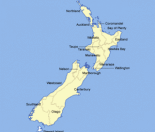Home based care is care and education provided by adults in either their own home or the child’s. Find out more about home based care in our article.
What is home-based childcare?
Home-based or in-home childcare is a care and education service for NZ children provided in their own home or the home of another adult caregiver and is another Early Childhood Education (ECE) option for your child before they reach school age. It is also sometimes referred to as family daycare; a long-established version of home-based care is Barnardos.
A homebased caregiver/educator will care for small groups of children as part of a chartered home-base care network. Caregivers/educators may provide full or part day care and may also be able to provide emergency care if it is needed.
Being part of a chartered network means that like other licensed and chartered ECE services, home-based care networks receive government funding and operate within education and other relevant legal parameters.
Home-based care differs from other ECE options you have as a parent in that your child remains in a home environment while they are being cared for; they do not attend a ‘centre’ as they would with other services. They are also reviewed by the Education Review Office (ERO). Home-based childcare is also different from any informal arrangement you may have with a babysitter or nanny.
Home-based care services may be privately owned and operated or community-based.
How does home-based childcare work?
Home-based care networks are the foundations for licensed home-based care. In order to gain funding from the government, home-based care networks must have a signed charter. While having a charter is not compulsory it is the norm.
Some home-based care networks may arrange care for up to 80 children at a time. Some of the larger networks cover more than 25 homes.
It is sometimes the case that these networks offer other forms of childcare and education services.
Home-based care works on a series of networks between caregivers/educators and co-ordinators and of course parents. Services are grouped together in networks, which are supervised by co-ordinators who are registered teachers.
Here’s a break down of responsiblilites and roles of each element of home-based care.
Caregivers/Educators
Caregivers (or carers) are responsible for the actual care and education of the children. They plan for and deliver the programmes to individual children. Most of the larger organisations of home-based networks provide training to caregivers that can be credited towards qualifications in home-based care. Caregivers must be 20 years of age or older.
Network
A network is a group of caregivers who look after a number of children and who are answerable to and overseen by one or more coordinators.
Co-ordinators
Each home-based care network must have its own co-ordinator or co-ordinators. This person has the overall responsibility for the individual network.
The co-ordinator has several roles, the two more important of which are:
- To help parents choose the right caregiver for their child
- To support the caregiver in order that they deliver the best care and education programme for each child.
The co-ordinator of a network must visit the home-based caregiver on a regular basis to check on the child’s safety, wellbeing and learning, carry out safety inspections, observe the carer in practice, provide advice and support to the carer and to ensure that all legal requirements are being fulfilled.
He/she must always be on duty for the hours that children are being cared for by the network. In a quality funded network they must be able to instantly respond to caregivers/educators and parents during these hours.
The co-ordinator of a quality funded network will also be on call for the caregivers at all times.
All co-ordinators must be ECE qualified registered teachers as per the Education (Registration of Early Childhood Services Teachers) Regulations 2004.
What will it cost me?
The cost of home-based childcare is less than a lot of other ECE services. This is because there are not the same costs involved in running a ‘centre’ based service and because the carers are not, for the most part, as qualified as educators/carers at other ECE services.
You can expect to pay between $4.00 and $6.00 per hour. However, this is just a guideline. Some networks allow carers to charge their own rates based on what they supply as a part of their service. For example, some carers may provide meals and nappies for your child where others may not. As always, asking the co-ordinator at the network you are interesting in using is the best way to determine what the cost of the childcare will be.
Who needs what qualifications?
The easiest way to answer this question is to say that caregivers/educators are not legally required to have any qualifications in order to be a home-based caregiver.
Co-ordinators on the other hand are legally required to have the same qualifications as those who are the teacher in charge at other types of ECE services. This means they must have a Diploma in Teaching (ECE) or a similar qualification.
But that is the short, not the long of the answer. Here’s the long.
There are different funding rates which apply to home-based networks and qualifications of caregivers/carers and co-ordinators has a bearing on the funding rate applied to that network. The minimum level of qualification required in order to apply for funding is one module of the NZQA Early Childhood (Home-based) qualification.
It is common for people with nannying or playcentre qualifications to become carers and all carers/educators will soon be required to have first-aid training. At present, quality networks will require that their carers/educators have undergone this first aid training.
It is in the best interests of both the children being cared for and the home-based care network to have educated carers, so most networks cater for this. A lot of the networks operate under umbrella organisations that provide some training to potential carers/educators and then offer further opportunity to complete higher levels of training from time to time. There are a few drawbacks in this process in that there are no incentives for carers to attain higher qualifications as networks require them to pay to undertake more training, and for the most part, do not pay them any more when they achieve higher qualifications.
You should ask about the qualifications of carers and training systems and opportunities available to them when you are doing your ECE research and before choosing a service for your child. (For more information on choosing a service see ECE –Choosing a Service).
When making a choice about childcare options you should consider the fact that because carers/educators need not be qualified in ECE, the level of education your child may receive at a home-based service may not be the same as he or she would receive at a service where there is a requirement for carers/educators to be qualified, such as a day care or kindy. However, the level of care they receive on an emotional and personal level may well be greater than they would receive with other services.
A good quality home based network will encourage and offer training opportunities educators training opportunities for them to improve their understanding and knowledge of how children learn.
What will my child be learning?
As with other ECE service providers, home-based networks for the most part develop educational programmes using the ECE curriculum Te Whariki. It should be the intention of the network to produce an individual educational programme for your child. However as mentioned earlier, your child is not likely to receive the same quality of education available at other centres. This is as a direct consequence of there not being a need for the carer to be qualified.
ERO’s ‘What Counts as Quality in Home-based Care’ (2001) report states the following to do with education in the home-based care environment.
‘While education and care are not separable activities taking place at different times or places, some activities contribute more to one than the other. In particular, those activities that deliberately extend children can be regarded as educational in intent while activities focused on physical and emotional needs have a greater care component.’
‘To the extent that this separation can be made, most home-based networks provide a high standard of care for children’s physical and emotional needs. With very few exceptions, caregivers are attentive and conscientious in dealing with children and interact regularly with them, involving them in day-to-day activities and providing a positive and enjoyable environment. ERO found positive relationships between caregivers and children in 85 percent of networks, compared with 3 percent that showed poor relationships.’
‘However, ERO found that the aspects of programmes aimed at education were less likely to be of high quality. While many of the educational needs of children are met naturally through the high quality interactions experienced at many of the homes in all care networks, few of the caregivers plan to extend the children.’
How do I know what my child has been doing and learning?
Good home based services will keep a record of your child’s time with them. This is likely to take the form of a ‘learning story’, a folder/book compiled by the carer/educator that will tell you what skills and ideas your child has displayed while doing what activities.
Some services will also write stories to accompany this record and include photos. As the home based service you choose how they keep parents informed about these things.
As with anything, asking and talking to those who spend time with your child is the best way of finding out about what goes on and how your child is doing.
What are the benefits of home-based childcare?
Some of the benefits of having your child attend home-based care are:
- Small group size with a maximum of four children under six, never more than two children under two years.
- Individual educational programmes are developed for each child.
- Children can develop a relationship with one significant other which is particularly beneficial for children under two.
- Family activities such as shopping, library visits, and trips to the park provide valuable learning experiences for children.
- The child’s own routines are able to be carried out in the educator’s home.
- Education and care is provided in a calm and familiar environment allowing children to build trust.
- Flexibility of hours—care can be arranged to suit parent’s needs.
- Regular visits from co-ordinators to support the carer, child and family.
- WINZ subsidies are available to those who are eligible.
How do I know my child will be safe in someone else’s home?
This is probably the single most worrying aspect of home-based care for a parent.
There can be concerns about how safe the carers home may be, visitors to the home, trips that may be taken with the carer and so on.
Home-based care networks are covered by the same provisions of the Education Act 1989 as other early childhood services. However, rather than being subject to the Education (Early Childhood) Regulations 1998, home care networks are regulated by the Education (Home-based Care) Order 1992.
This Order includes codes relating to the premises where home-based care takes place and to arrangements related to home-based care. There are provisions relating to the health and safety of children under care and provisions relating to the quality of services that must be provided by home-based care networks. The Order requires these coordinators to contact the caregivers regularly and observe their practice on a regular basis.
Provisions of the Order to do with health and safety include those about:
- the safety of premises where care takes place;
- minimum standards for the amount of indoor and outdoor space and access between the spaces;
- food and drink;
- the physical arrangements made for laundry, sanitary and sleeping facilities;
- access to a first-aid cabinet and first-aid training for caregivers;
- the protection of children from dangers arising from fire, earthquake and electrical fittings; and
- the isolation of sick children and the non-exposure of children to caregivers with infectious diseases.
These and other safety provisions are covered in much greater depth on the ERO website with information about charter content.
How do I know whether the care and education is of good quality?
All licensed early childhood services, including home-based care networks, are reviewed by ERO. When reviewing home-based care networks Review Officers examine network documentation, visit a sample of homes where care is being carried out to observe practice, and talk to coordinators, caregivers and parents to gather evidence to form a judgement of the quality of care and education within the network.
If you have a particular network of home-based carers in mind visit www.ero.govt.nz to view the ERO report for that network.
Alternatively in 2001 a comprehensive report was prepared by ERO as to the quality of home-based childcare. You can read the report in it’s entirety on the ERO website.
Helpful Home Based Care Websites
Website of the New Zealand Home Based Early Childhood Education Association.






